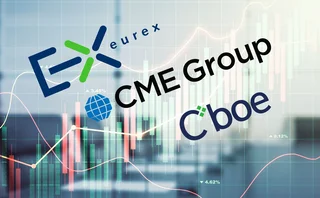
Banks call for third-country benchmark fix as EC delays BMR
Two-year delay may open the door for rethink on local legal representation requirements and recognition options

The European Commission (EC), which this week gave an extra two years to foreign benchmark providers to register their indexes in the trading bloc, should use the extension to tweak rules and ease the path to compliance, banks and industry groups say.
A major sticking point – the need for third-country administrators to field a legal representative in a member state – should be scrapped, they argue. Not only is the requirement hiking the cost of compliance, administrators such as Hong Kong’s
Only users who have a paid subscription or are part of a corporate subscription are able to print or copy content.
To access these options, along with all other subscription benefits, please contact info@risk.net or view our subscription options here: http://subscriptions.risk.net/subscribe
You are currently unable to print this content. Please contact info@risk.net to find out more.
You are currently unable to copy this content. Please contact info@risk.net to find out more.
Copyright Infopro Digital Limited. All rights reserved.
As outlined in our terms and conditions, https://www.infopro-digital.com/terms-and-conditions/subscriptions/ (point 2.4), printing is limited to a single copy.
If you would like to purchase additional rights please email info@risk.net
Copyright Infopro Digital Limited. All rights reserved.
You may share this content using our article tools. As outlined in our terms and conditions, https://www.infopro-digital.com/terms-and-conditions/subscriptions/ (clause 2.4), an Authorised User may only make one copy of the materials for their own personal use. You must also comply with the restrictions in clause 2.5.
If you would like to purchase additional rights please email info@risk.net
More on Markets
Lenders scramble to get ahead of Italian fallback mandate
New law requiring robust fallbacks for Euribor will take effect on January 10
FX automation key to post-T+1 success, say custodians
Custody banks saw uptick in demand for automated FX execution to tackle T+1 challenges
Review of 2024: as markets took a breather, firms switched focus
In the absence of major crises and rules deadlines, financial firms revamped strategy, services and practices
Cboe plans Q2 dispersion futures listing
Expectations of post-US-election uncertainty drives launch, and could help bank equity desks hedge OTC risks
Futures exchanges look to ride credit ETF wave
Proponents hope for increased buy-side trading, with three exchanges competing for market share
Doubts raised over new FX platform disclosures
New disclosure sheet template will require platforms to outline how they charge for data
Pimco and Vanguard slash FX forwards trading with BNP Paribas
Counterparty Radar: French bank sees its notional with mutual funds halve
Profit and pain as macro turmoil engulfs Brazil
FX options trades pay off, while sharp jump in rates caught traders by surprise







